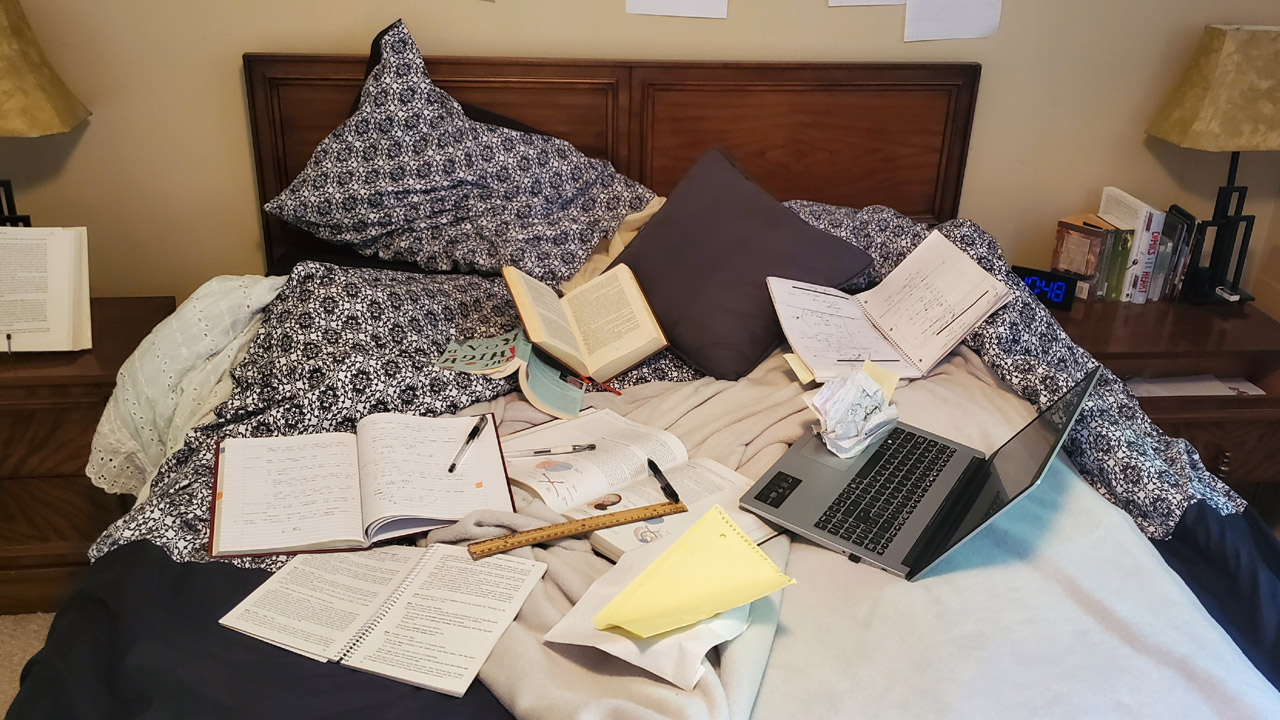Stress and sleep make for strange bedfellows
 CREDIT: CHRISTOPHER MISZCZAK
CREDIT: CHRISTOPHER MISZCZAKToo stressed to sleep but too sleepy to function? We've all been there.
It is a bit of a universal struggle in dealing with stress: that push for deadlines, the constant distractions of working from home, and more importantly in today’s world of the new normal, making that distinction between work and home.
Of course, we understand that it is a sacrifice that we all must make, especially when we are considering the direct benefit and cause of this quarantine, for the health and safety of others.
This toll however is taking a lot out of us. As this stress builds more and more, we become more and more drained. It is noticeable, for me at least, that I almost always want to sleep. Even if it is only for a few moments, I have noticed that I am not alone in this craving and desire. To quote my own grandfather, “a man needs his rest.”
It is the prolonged stress that can cause the nervous system to maintain a heightened state of arousal for extended periods of time. It is the “flight or fight” response which ties back to our evolutionary heritage. The issue here are the effects that prolonged stress has on our body and on our minds. At some point the system crashes. I would argue that not only is it important to manage ones time but also to manage one’s stress.
Dr. Adrian Owen and his laboratory at Western University, which has contributed several articles to the prestigious scientific journal “Sleep,” has emphasized time and time again on his web page various online presences, and his research on the importance of that balance between the right amount of sleep for our productivity.
Dr. Owen was nice enough to provide some very valuable insight.
“There is no question that getting the right amount of sleep is good for your brain. Our research has shown that between seven and eight hours per night is just the right amount to maintain your ability to make decisions — plan ahead — and solve even simple day-to-day problems. We have also found that this doesn’t change across the lifespan, contrary to popular belief. Older people may feel like they need less sleep, but the data has shown that if they maintained a routine then some of these crucial brain functions would be preserved well into old age.”
Alux.com, The Mayo-Clinic, Web-MD and the Sleep Foundation have all summarized that relaxation, reduced fatigue, increased alertness, improved mood, and even improved performance are all direct results of taking that afternoon nap and or a well-balanced sleep schedule.
The leading hypothesis from the textbook Neuroscience, Exploring the Brain Third Edition relates to a very specific purpose for sleep. It is meant as a restorative process for memory. It was found that depriving humans or lab rats of sleep can impair the ability to learn and more importantly perform a variety of tasks, ranging from basic to complex. It is this correlation between rest and memory which ties back towards productivity both physically and mentally.
In another study, Israeli neuroscientist Avi Karni and his colleagues hypothesized that memory requires a period of time to strengthen and that REM (rapid eye movement) sleep is particularly effective for this purpose, only emphasizing that point further
In another fascinating article on pubmed.gov, researchers are looking more into how sleep has even affected our evolution and its direct benefit in the act of remembering and cognitive functions.
According to another abstract by J.L. Kavanau who wrote on the Origin and Evolution of Sleep: Roles of Vision and Endothermy, each hour of sleep, at least observed in Arctic squirrels, results in several more hours of stabilizing brain functions. If this hypothesis is true, can the same be said for humans? In principle, yes, it can.
In summary, it is a very safe action item that sleep is not only very healthy for you but a necessary de-stressor. Since the stress is not going away anytime soon and since we are all stuck inside because of the quarantine, maintaining a healthy balance between stress and sleep is just as important if not even more so.
From popular media, to respected researchers in their fields, the consensus seems clear that sleep in a crucial for our well-being.














